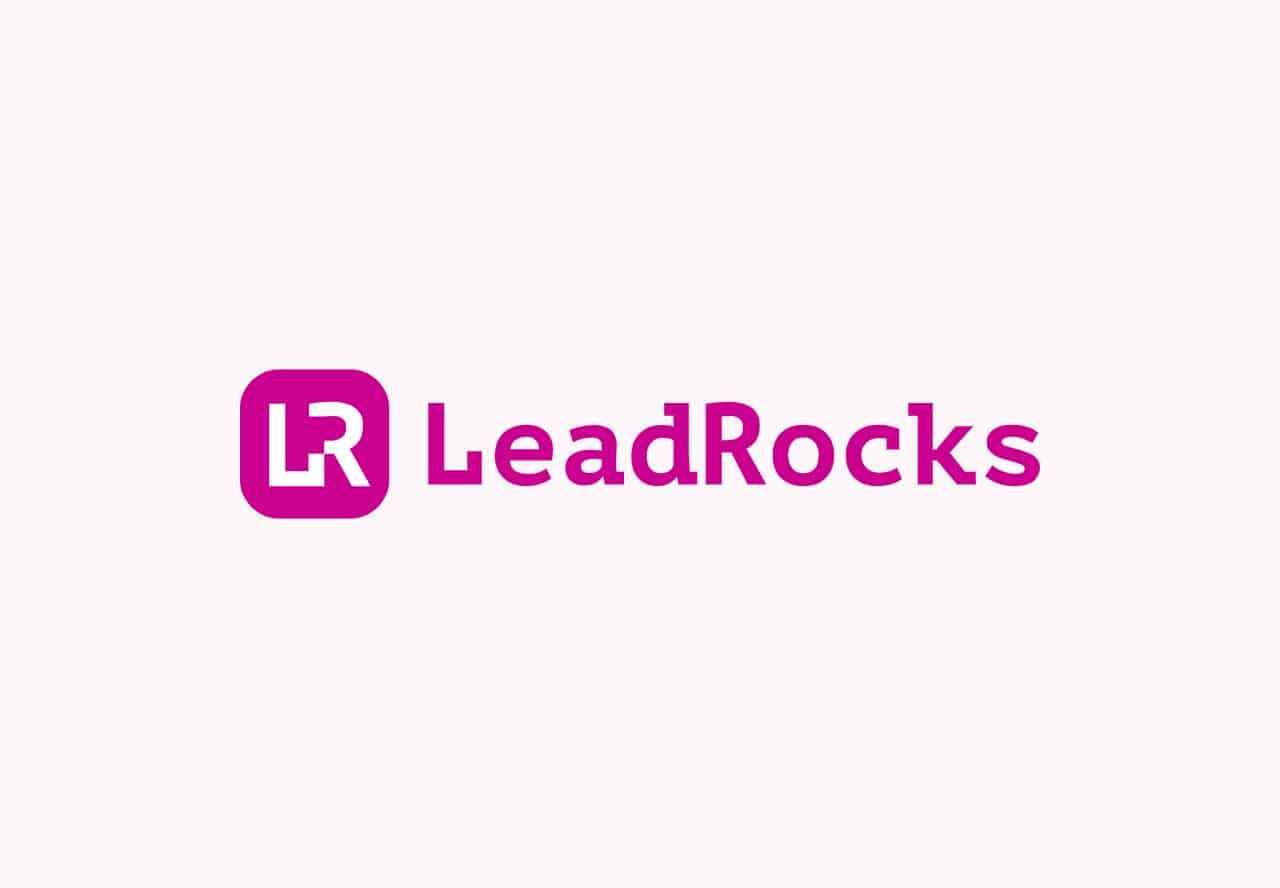Description

LeadHub

Sparkroom
Comprehensive Overview: LeadHub vs Sparkroom
As of my last update, both LeadHub and Sparkroom are platforms associated with lead management and marketing automation, but they serve slightly different purposes and may target different market segments. Keeping in mind that specifics may have evolved since then, here’s a comprehensive overview:
LeadHub
a) Primary Functions and Target Markets
- Primary Functions: LeadHub offers a comprehensive suite of tools for lead management, marketing automation, and customer relationship management (CRM). It typically focuses on generating, nurturing, and converting leads into customers. Its functionalities often include lead capture, lead scoring, email marketing, campaign tracking, and analytics.
- Target Markets: It primarily targets small to medium-sized businesses (SMBs) that require robust lead management solutions to enhance their sales and marketing efficiency. Industries that commonly use LeadHub include real estate, retail, and other service-oriented businesses.
b) Market Share and User Base
- Market Share and User Base: As a relatively niche player, LeadHub might not have the expansive market share of larger platforms like HubSpot or Salesforce. However, it has carved out a user base among SMBs looking for cost-effective and efficient lead management solutions.
c) Key Differentiating Factors
- User-Friendly Interface: LeadHub is known for its intuitive interface, which makes it accessible for users without extensive technical expertise.
- Affordability: Compared to larger platforms, LeadHub may offer more affordable pricing structures, appealing to smaller companies with budget constraints.
- Customization and Flexibility: It often provides customizable solutions that can be tailored to the specific needs of different businesses.
Sparkroom
a) Primary Functions and Target Markets
- Primary Functions: Sparkroom is a marketing automation platform with a strong focus on performance management and analytics, primarily in student enrollment and higher education marketing. It deals with lead generation, distribution, and attribution analytics.
- Target Markets: The primary market for Sparkroom is the education sector, specifically colleges and universities looking for sophisticated methods to manage their student acquisition strategies. It has support for multi-channel marketing orchestrating to optimize lead quality and enrollment outcomes.
b) Market Share and User Base
- Market Share and User Base: Sparkroom tends to have a solid presence in the higher education market, which is a specialized sector. Its user base includes institutions that require advanced data analytics and marketing optimization to streamline their enrollment processes.
c) Key Differentiating Factors
- Industry-Specific Design: Sparkroom is tailored specifically for the education sector, which makes it highly specialized compared to broader lead management solutions.
- Advanced Analytics: Known for its powerful analytics and reporting capabilities, Sparkroom provides in-depth insights into marketing performance and lead quality.
- Integration with Education Systems: It often integrates seamlessly with other systems used in higher education, such as Student Information Systems (SIS), making it a convenient choice for such institutions.
Comparison
-
Target Market Focus:
- LeadHub is more generic and aimed at SMBs across various industries, while Sparkroom is tailored for the education sector.
-
Functionality:
- LeadHub offers a broader range of standard lead management and CRM functionalities, whereas Sparkroom focuses heavily on analytics and data-driven management specific to student enrollment.
-
Market Position:
- LeadHub may appeal more to businesses looking for cost-effective and easy-to-use solutions, while Sparkroom caters to organizations in need of specialized, data-centric systems.
-
Pricing:
- Sparkroom, given its specialized market and advanced features, might command a premium compared to LeadHub's competitive offerings for smaller businesses.
To get current insights, it would be essential to check newer reviews, user forums, and market analysis sources as both products, their capabilities, and their market presence could have evolved beyond the information available up to 2023.
Contact Info

Year founded :
2011
Not Available
Not Available
United States
http://www.linkedin.com/company/lead-hub

Year founded :
2003
+1 877-423-1366
Not Available
United States
http://www.linkedin.com/company/sparkroom
Feature Similarity Breakdown: LeadHub, Sparkroom
When comparing LeadHub and Sparkroom, it's important to note that both tools are designed to assist with lead management and marketing automation, typically focusing on optimizing and managing marketing campaigns. However, they might cater to slightly different target audiences or market niches, which could influence their feature sets.
a) Common Core Features:
-
Lead Management: Both platforms provide robust tools for capturing, qualifying, and nurturing leads. They help streamline the process of handling business prospects from acquisition to conversion.
-
Campaign Management: Both LeadHub and Sparkroom offer features to manage marketing campaigns, track their performance, and optimize them for better ROI. This includes tools for setting up, monitoring, and adjusting campaigns based on performance metrics.
-
Reporting and Analytics: Detailed analytics and reporting features are critical for evaluating campaign success and making data-driven decisions. Both platforms offer comprehensive dashboards and reporting capabilities to track key performance indicators.
-
Integration Capabilities: Both solutions can typically integrate with other CRM systems and marketing platforms, aiding in a smooth flow of information across different tools and systems that a business might use.
-
Automation: Automation is a significant aspect they share, where repetitive tasks can be automated to save time and enhance efficiency in lead nurturing and campaign management.
b) User Interface (UI) Comparison:
-
LeadHub: Generally offers a user-friendly interface with a focus on simplifying the lead management process. The design might lean towards a more straightforward, functional layout, aiming to reduce complexity for the user.
-
Sparkroom: Known for a more data-driven approach, Sparkroom's interface might incorporate more analytical tools directly onto dashboards. This could make the interface seem more complex at first but beneficial for users who prioritize in-depth data analysis.
c) Unique Features:
-
LeadHub:
- Might offer stronger emphasis on specific industry solutions or have tailored features that cater to certain types of businesses, like small to medium enterprises.
- Could provide more customizable lead scoring or unique integrations that make it particularly supportive for specific CRM systems or industry standards.
-
Sparkroom:
- Known for its advanced data integration capabilities, Sparkroom might have more robust features for handling complex data streams from multiple marketing channels and sources.
- Can be equipped with more sophisticated cross-channel attribution features, helping businesses gain a better understanding of how different marketing efforts contribute to conversions.
In conclusion, while both platforms share many core features centered around lead and campaign management, unique differentiators often align with the specific business needs or industry focuses that each platform supports. User interface preferences might also play a significant role in choosing between them, depending on whether simplicity or depth of data analysis is prioritized.
Features

Not Available

Not Available
Best Fit Use Cases: LeadHub, Sparkroom
LeadHub and Sparkroom are platforms designed to support different aspects of marketing and lead management, but they cater to varying needs and industry verticals. Here’s a breakdown of their best fit use cases:
LeadHub
a) Best Fit for Types of Businesses or Projects:
- Small to Medium-Sized Enterprises (SMEs): LeadHub is ideal for SMEs looking for a comprehensive lead management solution that integrates well with their existing systems.
- E-commerce and Retail: Businesses that rely heavily on direct-to-consumer sales and need efficient lead tracking and nurturing will find LeadHub beneficial.
- Service-Based Industries: Companies such as real estate agencies, consultancies, or financial services that require personalized lead management and customer relationship management (CRM) can leverage LeadHub.
- Startups: With its focus on scalability and growth, startups can use LeadHub to establish and grow their customer base with effective lead nurturing.
d) Industry Verticals and Company Sizes:
- Industry Verticals: LeadHub serves a wide variety of industries, including e-commerce, education, finance, and healthcare, with customizable solutions.
- Company Sizes: Best suited for small to medium-sized businesses, as it provides essential features without overwhelming complexity or cost, making it accessible for those with limited resources or expertise.
Sparkroom
b) Preferred Use Cases and Scenarios:
- Higher Education: Sparkroom is particularly strong in the higher education sector, where it helps in managing and analyzing student acquisition campaigns effectively.
- Large Enterprises and Agencies: Ideal for larger organizations and marketing agencies that require detailed analytics and multi-channel marketing campaign management.
- Multi-Location Businesses: Companies operating in numerous locations that need centralized reporting and tracking can benefit from Sparkroom’s capabilities.
- Performance Marketers: Those who specialize in data-driven decision-making and require in-depth analytics and tracking for optimization will prefer Sparkroom.
d) Industry Verticals and Company Sizes:
- Industry Verticals: Sparkroom is tailored for the education sector but can also serve other industries like insurance and financial services where complex, multi-channel lead strategies are needed.
- Company Sizes: Typically suited for larger companies or those with extensive marketing departments due to its comprehensive analytics and reporting functionality, which might be overkill for smaller operations.
In summary, while LeadHub offers straightforward, scalable solutions for SMEs and various service-based industries, Sparkroom thrives in environments that demand complex, high-volume data processing and analytics, such as large enterprises and educational institutions. Each platform caters to different needs based on company size, industry focus, and the complexity of lead management requirements.
Pricing

Pricing Not Available

Pricing Not Available
Metrics History
Metrics History
Comparing teamSize across companies
Conclusion & Final Verdict: LeadHub vs Sparkroom
When comparing LeadHub and Sparkroom, it's important to consider several factors including functionality, pricing, customer support, integration capabilities, and scalability. This evaluation will provide a well-rounded perspective on which product might offer the best overall value, along with the pros and cons of each option, and specific recommendations for potential users.
a) Considering all factors, which product offers the best overall value?
Best Overall Value: LeadHub
LeadHub appears to offer the best overall value, especially for small to medium-sized businesses. It provides a user-friendly interface, robust features for lead management, and flexible pricing that can accommodate different business needs. LeadHub’s integration capabilities with other business tools and its comprehensive customer support further enhance its value proposition.
b) Pros and Cons
LeadHub
Pros:
- User-Friendly Interface: LeadHub is designed with usability in mind, making it easy for teams to get up and running quickly.
- Integration Capabilities: It offers seamless integration with a wide array of third-party applications, enhancing workflow efficiency.
- Scalability: Suitable for both small and medium-sized enterprises looking to grow.
- Strong Customer Support: Provides reliable customer service with fast response times.
Cons:
- Limited Advanced Features: May lack some of the advanced features that larger enterprises or tech-savvy businesses might require.
- Customization Constraints: While flexible, the platform may have some limitations when it comes to deep customization.
Sparkroom
Pros:
- Comprehensive Analytics: Provides advanced data analytics and reporting, ideal for businesses that require detailed insights.
- Robust Lead Management: Feature-rich in terms of managing and automating lead processes.
- Enterprise-Level Capabilities: Tailored more towards large enterprises with complex lead management needs.
Cons:
- Complex Setup: Has a steeper learning curve and may require more time and resources to implement effectively.
- Higher Cost: Typically more expensive compared to LeadHub, which might not be feasible for smaller businesses.
- Limited Flexibility: Less agile in adapting to smaller, niche markets or highly specific business models.
c) Specific Recommendations for Users
-
Small to Medium-Sized Businesses: LeadHub is the recommended choice due to its cost-effectiveness, ease of use, and the ability to scale with your business as it grows.
-
Large Enterprises or Data-Driven Companies: Businesses focusing on in-depth analysis and extensive lead management should consider Sparkroom. Its analytics capabilities are more advanced, making it suitable for larger teams with more complex needs.
-
Budget Considerations: If budget is a primary concern, LeadHub tends to be more affordable and delivers substantial value without compromising on essential features.
-
Ease of Use vs. Functionality: If your team prioritizes a straightforward, easy-to-implement system, LeadHub is favorable. For teams that can handle complexity and prioritize comprehensive functionality over ease of use, Sparkroom would be a better fit.
In conclusion, the decision between LeadHub and Sparkroom should be based on the specific needs, size, and budget of your organization. Each platform has unique strengths and potential drawbacks, and the right choice will depend on which factors align most closely with your business priorities.
Add to compare
Add similar companies




